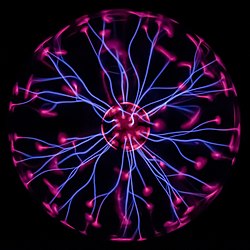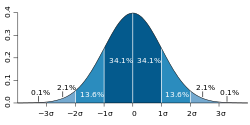
Back Portal:Wisseschaft ALS ውክፔዲያ:ሳይንስ Amharic بوابة:علوم Arabic قيسارية:صيونص ARY بوابة:علوم ARZ Portal:Elm Azerbaijani پوْرتال:علم AZB Портал:Фән Bashkir Portal:Wissnschoft BAR Portal:Siyensya BCL
Science portal

Science is a systematic discipline that builds and organises knowledge in the form of testable hypotheses and predictions about the universe. Modern science is typically divided into two – or three – major branches: the natural sciences, which study the physical world, and the social sciences, which study individuals and societies. While referred to as the formal sciences, the study of logic, mathematics, and theoretical computer science are typically regarded as separate because they rely on deductive reasoning instead of the scientific method as their main methodology. Meanwhile, applied sciences are disciplines that use scientific knowledge for practical purposes, such as engineering and medicine. (Full article...)
Featured article -
Featured pictures
Vital articles
Energy (from Ancient Greek ἐνέργεια (enérgeia) 'activity') is the quantitative property that is transferred to a body or to a physical system, recognizable in the performance of work and in the form of heat and light. Energy is a conserved quantity—the law of conservation of energy states that energy can be converted in form, but not created or destroyed. The unit of measurement for energy in the International System of Units (SI) is the joule (J). (Full article...)
Did you know...
- ... that Mary Robertson was the first woman to receive a Doctor of Science degree in medicine from the University of Cape Town?
- ... that Mary Clutter used her directorial position at the National Science Foundation to require scientific conferences to include women speakers when presenting research done by them?
- ... that science fiction authors who want to avoid the paradoxes associated with time travel may instead write about time viewers?
- ... that the calling patterns of the Japanese tree frog have been used in wireless network design, furthering an area of science known as swarm intelligence?
- ... that the 1827 novel A Voyage to the Moon contains the first use of anti-gravity for space travel in science fiction?
- ... that a science fiction short story from 1939 has been called an "eerie prediction" and "an uncanny, horrifyingly vivid prophecy" of The Holocaust?
Get involved
| This portal needs to be updated. Please help update this portal to reflect recent events or newly available information. Relevant discussion may be found on the talk page. |

|

|
Science News
- 23 June 2025 – Middle Eastern crisis
- A United Nations fact-finding mission reports that Israeli strikes on Iran’s state broadcasting agency and killing of Iranian nuclear scientists were likely in violation of international humanitarian law. (Al Jazeera)
- 13 June 2025 – Middle Eastern crisis
- Israel also launches targeted assassination strikes against senior Iranian government officials, Iranian military leadership and senior nuclear scientists. (Reuters)
- 16 April 2025 –
- A colossal squid is filmed in the Southern Atlantic Ocean for the first time since the species was discovered in 1925. The 30 cm (12 in)-long juvenile was filmed by a team of scientists led by the University of Essex near the South Sandwich Islands at a depth of 600 m (2,000 ft). (BBC News)
- 14 April 2025 – Blue Origin NS-31
- A Blue Origin New Shepard launch vehicle makes a brief sub-orbital spaceflight, carrying six female space tourists, marking the first all-female spacecraft since 1963's Vostok 6 which had Valentina Tereshkova as the pilot and the spacecraft's sole passenger. (NPR) (USA Today)
- 1 April 2025 – Private spaceflight
- SpaceX successfully launches four humans into orbit over Earth’s poles for the first time for the human spaceflight mission Fram2. The journey will last three to five days. (The New York Times)
Related portals
Top 10 WikiProject Science Popular articles of the month -
Categories -
© MMXXIII Rich X Search. We shall prevail. All rights reserved. Rich X Search



































































